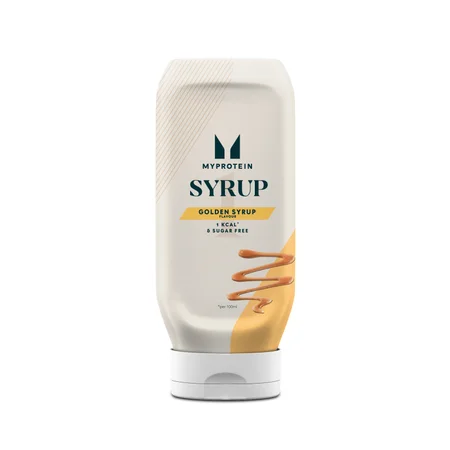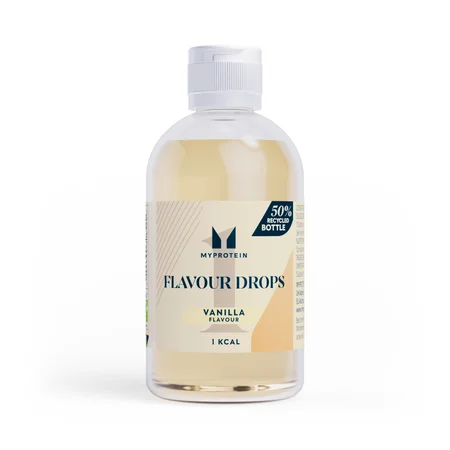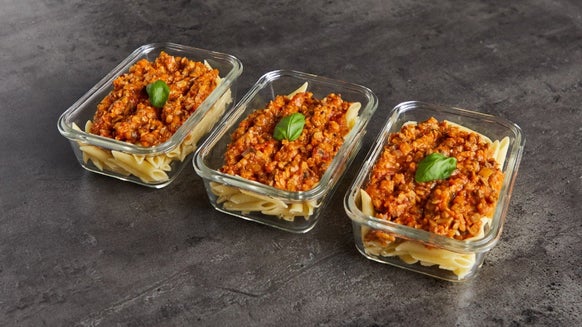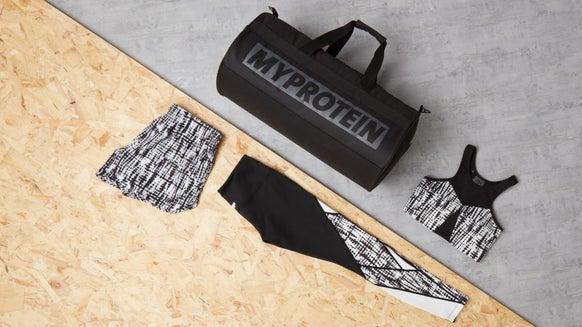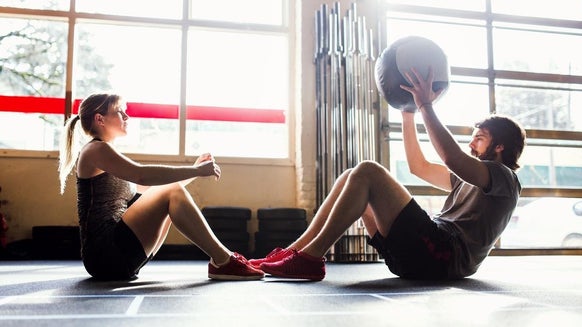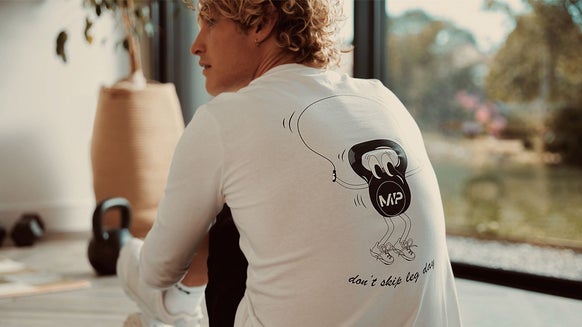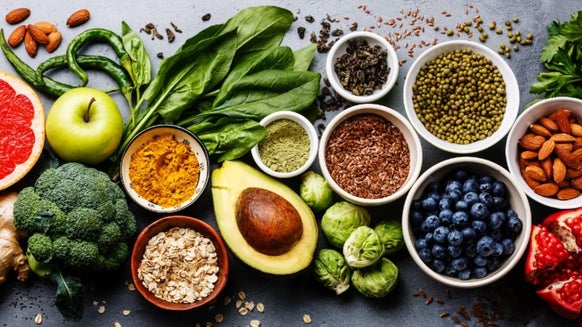14 Foods High In Protein: Sources And Vegan Alternatives
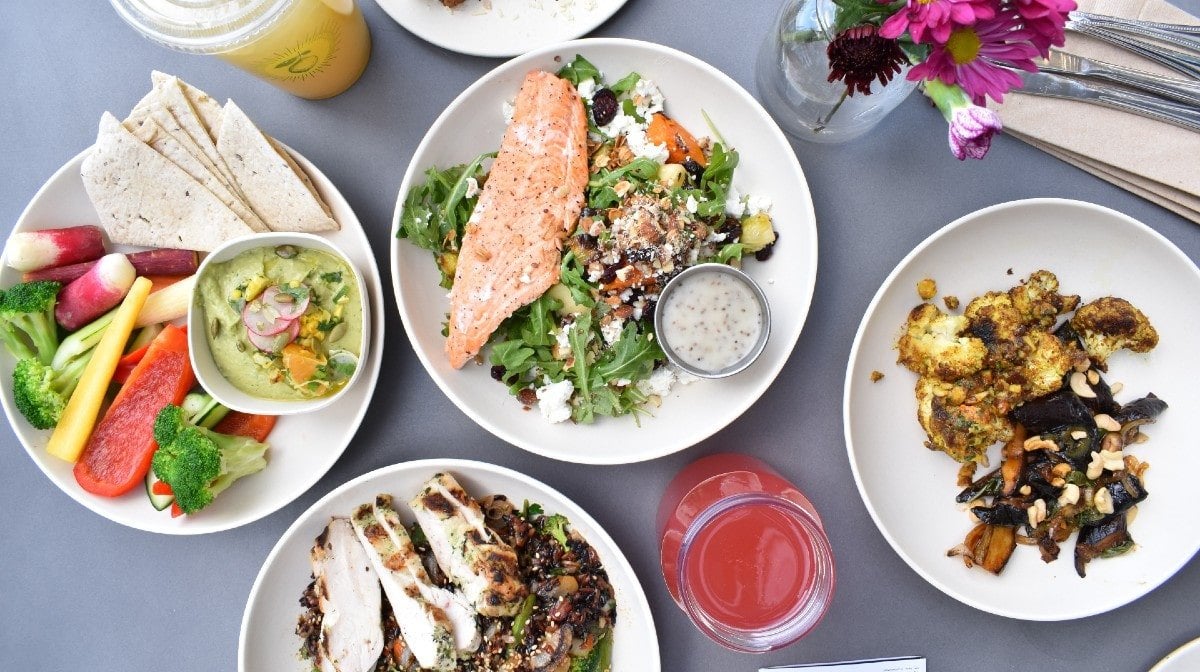
What comes to mind when I say the word protein?
Aside from the fever dream of delicious powder varieties and snacks available at Myprotein, your mind is also likely going to the “old classics”; red meat, poultry, fish, eggs, and milk.
While these are indeed great sources of high quality protein (which is simply a complete source of protein rich in amino acids) they can be expensive and, in the current climate, you may be concerned with the environmental impact as well as the moral implications of a diet dense in these protein sources.
“But if I don’t eat these I won’t meet my protein requirements…”
Not necessarily.
While government recommendations for protein are fairly low (0.75g protein per kg body weight per day which roughly equates to 56g/day and 45g/day for men and women of average body weights)(1) we’ve highlighted many times that a beneficial intake of protein is above the 1.2g of protein per kg of bodyweight (2) and, if you’re training frequently, may be as high as 1.6g to 2.2g per kg of bodyweight (3).
Does that mean that you absolutely must have the “old classics” at every meal? Absolutely not.
Here’s a list of my favourite alternative protein sources that you can compliment your current diet with, or look to replace existing sources with, whether that’s motivated by environmental impact, morality, cost attachment or even if you’re just looking for a change.
14 Foods Surprisingly High in Protein
Here are 14 of my favourite protein sources that not many people know of, or include in their diet.
Tofu
Tofu is one of the very few complete high quality plant protein sources.
Most plant protein sources are described as “low quality” simply because they provide an incomplete amino acid profile, which means they have to be complemented with another plant protein source to achieve a complete amino acid profile.
Tofu is relatively high in protein as well, providing around 13 - 18g per 100g (cooked). Tofu is relatively low in calories, high in iron, and can have a high calcium or magnesium content too.
Many people are put off tofu as it can be a bit confusing as to how it’s best prepared and cooked.
An incredibly simple, yet tasty, way of cooking your tofu is to simply cut it into chunks or slices and to air fry it. I’d recommend going for a firmer variety of tofu and also marinating it before air frying to heighten the flavour.
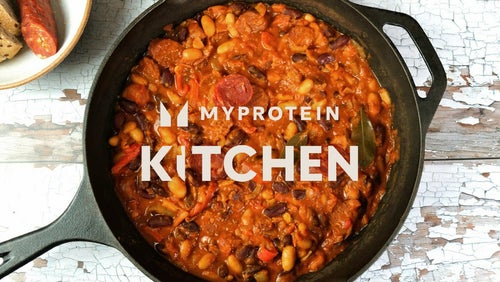
Chorizo & Bean Stew
Serve up a little spice with this warming winter stew.
Beans
Beans are one of the most criminally underrated of all foods; they’re bursting full of fibre, vitamins and minerals.
They’re relatively low in calories per serving, versatile in how they can be eaten and incorporated into recipes, and incredibly effective at helping you manage hunger.
Even if you were to look at the humble baked bean, you’ll get around 5g of protein per 100g of beans (while only being around 75 - 80kcals).
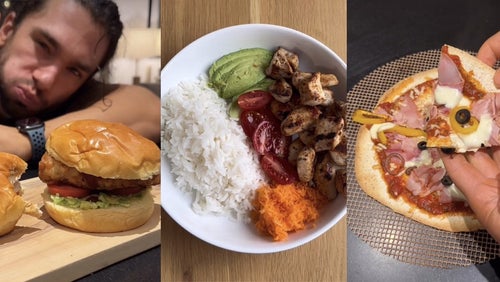
4 High-Protein Dinner Recipes To Help With Muscle Building
Switch up your meals this January.
Spirulina
Spirulina is a kind of algae and is one of the most nutrient dense of all foods.
It’s loaded with nutrients, vitamins, minerals, antioxidants and polyphenols (unique compounds found only in plants).
Spirulina is typically eaten in relatively small amounts (one to two tablespoons per day) but even then you can expect to achieve around 3-4g of protein per serving (tablespoon).
Spirulina is also one of the few plant-based protein sources considered high quality as it provides all of the essential amino acids your body needs.
If you’re interested in including spirulina in your diet it would be best to mix into a smoothie or something similar as it has a fairly “potent” flavour.
Fromage frais
Everyone raves about Greek yoghurt and the “protein puddings” which most major supermarkets have now launched, but not many know about the awesomeness of fromage frais.
Per 100g you can get anywhere between 8 - 11g of high quality protein for 50 - 55 kcals. You’ll also be achieving a great deal of your vitamin and mineral requirements, especially your B vitamin and calcium needs.
You can have fromage frais in a multitude of ways as well; it’s a great addition to a baked potato but can even be had as a substitute for greek yoghurt - all you have to do is either add in a scoop of protein or even a few Myprotein Flavdrops and you’ll have a much cheaper, yet just as nutritious (if not more so), substitute for the more popular high-protein yoghurt and dairy products now available.
Cheese
Cheese. It’s amazing. And what’s more, a protein lover's dream.
There’s a huge variety of cheese out there so it’d be difficult to give an approximate range but you can expect anywhere between 6 - 14g per 50g serving.
Much like fromage frais, cheese is also a great nutritional source of a range of vitamins and minerals with B vitamins and calcium being some of the standouts.

Get 230g Of Protein A Day With These Recipes
Food is fuel, but that doesn’t mean it can’t taste good.
Edamame beans and green peas
Edamame beans are a sneaky, but fantastic source of protein for the plant-based crew and those just looking for protein source alternatives.
You can expect to get over 10g of protein per 100g serving for a relatively low calorie amount (120kcals roughly).
Green peas are a good source of protein too and provide roughly half the amount of protein per 100g portion than edamame beans (around 5 - 6g per 100g portion), but they come in at a lower calorie amount (85 - 95kcals per 100g).
Both are packed full of other nutrients, vitamins and minerals and are both considered great sources of fibre.
Edamame beans make for an easy snack on the go and both can be added to recipes and meals to top up the protein content.
Nuts and seeds
Nuts and seeds are a great heart-health improving snack. They may help lower and improve cholesterol (thanks to the provision of healthier fats) in addition to being a good source of fibre.
Nuts and seeds can also be a really useful means of topping up your daily protein intake.
High protein nuts and seeds include hemp seeds, pumpkin seeds, peanuts, almonds, pistachios, sunflower seeds, flax seeds, chia seeds and more.
Per 200 kcal serving of the listed nuts and seeds you can expect to achieve between 6..5 to 12g of protein with hemp and pumpkin seeds providing the highest amount of protein per serving.
Cottage cheese
Cottage cheese isn’t necessarily a lesser known protein source but I feel it’s somewhat gone out of fashion.
In the mid to late 2000s cottage cheese was the featured food in almost every health and fitness magazine with countless images of oiled up, muscle-bound people in the gym laughing into a half-eaten pot of plain cottage cheese… It’s weird the things you remember sometimes.
But it’s fallen out of fashion recently and that’s likely because people could no longer suffer through tub after tub of plain cottage cheese (especially given the texture represents what I imagine drinking from an extremely out of date milk carton would feel like).
With that, it has become more affordable and manufacturers are making more of an effort to make it more palatable and exciting. There’s a whole range of cottage cheese varieties now, from the O.G. pineapple and chive to more exotic barbecue and chilli flavours.
Cottage cheese is a great source of high quality protein and is relatively affordable, so definitely worth adding back into your high protein snack rolodex.
Nutritional yeast
Sounds gross, tastes pretty good.
I appreciate your scepticism but nutritional yeast actually has a kind of nutty, cheesy flavour to it and is actually a really tasty addition to a whole range of meals and recipes.
As the name implies, it’s also incredibly nutritious and you can land close to 10g of protein for only two tablespoons worth of yeast.
A protein source you may have slept on, but one definitely worth trying.
Quinoa
Quin-who? Quinoa, that’s who.
The original influencer “super food”, quinoa is, in all fairness, a wonderfully nutritious grain and carbohydrate source.
Vitamins and minerals galore can be found in quinoa and it also provides a healthy (literally) amount of fibre (roughly 4 - 5g per 100g cooked).
In terms of protein content, quinoa provides around 5 - 6g (per 100g cooked) which is not too shabby at all for a grain.
I’d also note that around 100g cooked provides around 120 - 130kcals so it’s practically achievable to include in your daily diet as well.
Soup
Soup is amazing.
It helps to warm you up during the colder months while being able to provide at least one if not two to three portions of your daily fruit and veg intake, usually in a more calorie and time efficient manner.
Soup can also be a great source of protein but it varies widely. I’ve found some microwavable soup pots that provide up to 20 + grams of protein per pot!
Keep your eyes peeled for these soups and be sure to check the nutritional information on the back. Bean, pea or lentil based soups will typically provide the most amount of protein (outside of those containing some form of meat) per pot / tin as will those which include some form of cheese (albeit these often tend to be higher in calories and less healthy fats).
Greek yoghurt
I know I've been highlighting foods that can be seen as an alternative for Greek yoghurt but I still love me some Greek yoghurt, so I can’t exclude it.
I would be mindful when selecting your Greek yoghurt though as I’ve noticed many of the flavoured varieties appearing are now rich in added sugars and much lower in protein content.
Greek yoghurt is an excellent source of calcium, a mineral critically important to maintain and even improve bone health.
Greek yoghurt is also a source of probiotics. These are live bacterial strains which support a healthy bacterial balance in the gut by improving gut microbiota diversity and profile.(4)
A quality Greek yoghurt product will provide around 8-11g of protein per 100g of yoghurt (for anywhere between 60 - 80 kcals).
Make sure to read the nutrition label on the back before you buy.
Wild rice
Wild rice is like the young prince who tried to supplant the king. The king being quinoa… king-oa, if you will.
It became an influencer darling for a while and an uprising against quinoa looked like it was on the cards but that sort of trailed off when people realised quinoa was both cheaper and more nutritious.
If they aren’t a quinoa fan, wild rice may still be a useful addition to a health-focused individual’s diet if aiming to increase protein intake.
Wild rice provides around 4g of protein per 100g cooked rice (with 100g cooked providing just over 100 kcals).
Whole Grain pasta
Another carb to consider as you progress towards more protein is whole grain pasta.
This form of pasta is typically lower in calories and contributes more vitamins and minerals than the white, refined equivalent, making it a more nutritious choice.
Whole grain pasta is also an improved source of fibre over the refined, white equivalent as well as being one of the better grain related sources of protein.
Per 100g cooked pasta you can find anywhere between 5.5 to 8g of protein and it is a tad more energy dense making it a great option for lean muscle building!
Take home message
Reaching your protein requirements, especially if you are more active and have a higher daily demand, can seem impossible if you are aiming to move away from the “old classics”.
Just because these are the most well known, and likely the protein sources you’re most familiar with, doesn’t mean they’re your only option!
The fourteen sources we’ve listed here will make for great replacements, compliments or additions to your current diet so you can look to move on from the “old classics” or at least reduce your intake (if that’s your goal).
Even if reducing your current intake of the classics isn’t your goal, having other sources of protein you can rely on and include will help achieve a more nutritionally dense diet with a lot more variety.
READ THESE NEXT:

Nutrition Science Team, Public Health England, 2016., “Government Dietary Recommendations; Government recommendations for energy and nutrients for males and females aged 1 – 18 years and 19+ years” find online https://assets.publishing.service.gov.uk/government/uploads/system/uploads/attachment_data/file/618167/government_dietary_recommendations.pdf
Nunes, E.A. et al. (2022) “Systematic review and meta‐analysis of protein intake to support muscle mass and function in healthy adults,” Journal of Cachexia, Sarcopenia and Muscle, 13(2), pp. 795–810. Available at: https://doi.org/10.1002/jcsm.12922.
Jäger, R., Kerksick, C.M., Campbell, B.I. et al., 2017., International Society of Sports Nutrition Position Stand: protein and exercise. J Int Soc Sports Nutr 14, 20. https://doi.org/10.1186/s12970-017-0177-8
Lisko, Daniel J., G. Patricia Johnston, and Carl G. Johnston. 2017., “Effects of Dietary Yoghurt on the Healthy Human Gastrointestinal (GI) Microbiome” Microorganisms 5, no. 1: 6. https://doi.org/10.3390/microorganisms5010006
